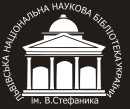DOI: https://doi.org/10.37222/2524-0331-2020-10(28)-21
Stiekolshchikova Valentyna
Specifity and conceptualization of social and psychological basis of effective gradation of journalistic investigation topical variety
Abstract:
At present a journalistic investigation is one of the most popular genres of journalism. At the same time it is the most expensive and the most valued. An investigation requires a journalist to search constantly for relevant resonant topics, sources of information, in the unsafe work conditions. Additionally, the investigators often lack a moral satisfaction of their work due to some reasons. Specifically, revelations produce some certain public feedback, but usually there are no constructive reactions from social institutions. This article aims to study ideological and topical gradation of quality journalistic investigations, as a component of the creative process and social and psychological basis of the investigator’s media experience, outlining the basic concepts of intensification and effectiveness of the modern resonant investigation. Research methodology is a combined system of methods, including communicative-rhetorical and search methods, with the elements of semiotics and media analysis; method of functional―structural and stylistic analysis, as well as conceptual approach of the author.
Research findings and conclusions. The paper presents a diverse vision of the journalistic investigation thematic choice through the prism of social order and resonance. The detailed gradation of ideological and thematic directions of the investigations in the context of unity of regional and all-Ukrainian investigative texts of different types of publications has been presented. It has been proved that a variety of topics, ideas and concepts has their action components, certain structural features, characters (e.g., protagonist and antagonist), specifics of the main interview, set of source tools, response and audience. We differentiate topical variety of investigative texts, present their analysis, and illustrate them with relevant examples. We conclude that at present investigative texts in Ukraine could be classified as follows: portrait, social, corruption-related, political crime, historical mysteries, criminal, economic, ecological, sport and art-related investigations.
Keywords: journalistic investigation, investigative text, storytelling, experimental and practical socio-triad, stirring up of readers’ interest.
References:
- Hlushko, O. K. (2008). Zhurnalistske rozsliduvannia: istoriia, teoriia, praktyka [Journalistic investigation: history, theory, practice], Kyiv, Aristei, 144 s. (in Ukr.).
- Goncharov, V. V. & Domagalskaja, N. U. (2006). Zhurnalistskoe rassledovanie— ot zamysla k voploshheniju [Journalistic investigation― from idea to realization], Bishkek, Soros — Kyrgyzstan, 146 s. (in Rus.).
- Dolgina, E. S. (2015). Kriminalnaja zhurnalistika: teoreticheskij aspekt [The criminal journalism: a theoretical aspect], Molodoj uchenyj, no. 7, s. 1111—1114. (in Rus.).
- Konstantinov, A. D. (2003). Zhurnalistskoe rassledovanie. Istorija metoda i sovremennaja praktika [Journalistic investigation. A history of method and modern practice], Sankt-Peterburg, Izdatelskij Dom «Neva», Moskva, «OLMA-PRESS», 480 s. (in Rus.).
- Kopchak, B. (2007). Zhurnalistski rozsliduvannia v Ukraini [Journalistic investigations in Ukraine], Ukrainskyi zhurnal, no. 12, s. 49—52. Retrieved from https://http://ukrzurnal.eu/ukr.archive.html/126.(in Ukr.).
- Pfajfer, B. (2000). Zhurnalistske rozsliduvannia [Journalistic investigation], Kyiv, IMI, s. 12. (in Ukr.).
- Radu, P. (2010). Sledite za dengami [Keep track on the money], Kiev, Institut razvitija regionalnoj pressy, 315 s. (in Rus.).
- Stanko, A. I. (2004). Zhurnalistskoe rassledovanie v SMI [Journalistic investigation in media], Rostov-na-Donu, Litfond, 111 s. (in Rus.).
- Tertichnij, A. A. (2002). Rassledovatelskaja zhurnalistika [Investigative journalism], Moskva, AspektPress, 384 s. (in Rus.).
- Shum, Ju. (2002). Zhurnalistskoe rassledovanie: ot teorii k praktike [Journalistic investigation: from theory to practice], Moskva, 164 s. (in Rus.).
- Ullmen, Dzh. (1998). Zhurnalistskoe rassledovanie [Journalistic investigation], Moskva, 123 s. (in Rus.).
- Xomenko, O. S., Burmahin, O. O., Ivanova, K. B., Rybka, Ye. M., Tomilenko, S. A. (2008). Zhurnalistske rozsliduvannia: navch. posib. dlia pochatkivtsiv [Journalistic investigation: a textbook for beginners], Melitopol, In-t rozvytku regionalnoyi presy, 182 s. (in Ukr.).
- Hunter, M. (2012). The Global Investigative Journalism Casebook, Paris, 255 p. (in Eng.).
- Retrieved from http://nikcenter.org/inquests
